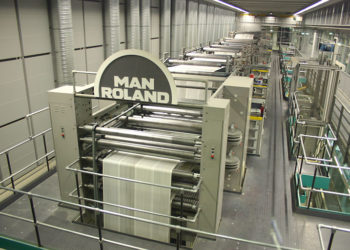How many times throughout your life have you read predictions of the “paperless office of the future”? Wikipedia traces the notion to the 1940s, the BBC suggested it in 1969, WIRED in the mid-1980s, and the Wall Street Journal earlier this month. While I’ve certainly seen my filing cabinets dissipate over time, I still find myself jotting notes on paper, and being handed a stack of reports when I attend meetings. Is ink on paper just too good an interface to give up on?
For the definitive answer about the future, as always, we turn to Star Trek, which suggests that paper will be around a lot longer than you might suspect.
Discussion
3 Thoughts on "The (Not So) Paperless Future"
I realised that it is quite a paper world here, in XXI century, when all of the members of my PhD jury, one by one, demanded a paper copy of my thesis (sooner or later after I sent them a PDF).
This probably has something to do with the fact that making a 150-pages PDF that is easy to navigate – with my current experience and available tools – is much harder than printing it out, and binding it into a nice booklet with a shiny cover.
OTOH, it is evidence that they really want to read it. So maybe not so bad???
Credit for an extended exposition of this idea also belongs to F.W. Lancaster who published Towards Paperless Information Systems in 1978 – http://www.worldcat.org/oclc/471766854
I came across it in 1981 and have been waiting patiently ever since!



